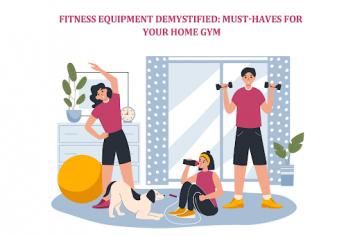Erika Niedernhofer, Registered Dietitian
Do you feel like your alcohol consumption has increased over the past year, particularly during the pandemic? You may not be alone. New research suggests that alcohol consumption in the United States has risen 14% during pandemic shutdowns. Binge drinking, according to reports, has risen as well. Between 2019 and now, during the pandemic, men and women both reported increasing the frequency of their binge drinking episodes, defined as five or more drinks for men and four or more drinks for women within a couple of hours.
Many people give alcohol a passing grade because of its association with lower heart
disease risk—although even this association pertains to moderation – 2 drinks per day
for men and 1 drink per day for women. How does excess consumption affect you, your health-physical and/or mental, your relationships? Let’s take a look.
Injuries
Studies indicate alcohol plays a significant role in serious car accidents, trauma injuries, and deaths from burns, drownings, and homicides. Furthermore, a study published
online on March 3, 2020, by the American Journal of Preventive Medicine found that a significant amount of motor vehicle deaths involve people who’ve consumed alcohol but whose blood alcohol levels do not exceed the legal limit.
Sleep
Alcohol disrupts the important REM stage of sleep and may also interfere with your
breathing. Alcohol may initially make you drowsy, but it can potentially interrupt your
sleep during the night. You also may need to get up more often to pee.
Heart
You might think that a regular glass of red wine or other alcoholic beverages might be
good for your heart. But that may not be true, or true only for light sippers (less than one drink a day). For example, a study in the Journal of the American Heart Association in 2016 found that even one drink a day can be “cardiotoxic” and increase the risk of atrial fibrillation and enlargement of one of the heart’s chambers, with the risk rising with each daily drink.
Keep Immunity in Check
Your immune system is constantly fighting off viruses, even more so during the cold and flu season as well as during this pandemic. According to the Cleveland Clinic, once you take a sip of alcohol, your body prioritizes breaking down alcohol over several other bodily functions. The body doesn’t have a way to store alcohol as it does with protein, carbohydrates, and fats, so it has to immediately send it to the liver, where it is metabolized. Even just one bout of drinking too much may weaken your body’s germ-fighting power for up to 24 hours. Over time, large amounts of alcohol blunt your immune system and your body’s ability to repair itself. Ease up on drinking so you may
better ward off illnesses.
Your Liver May Heal
Your livers’ job is to filter toxins. Alcohol is toxic to your cells. Heavy drinking — at least
15 drinks for men and eight or more for women a week — can take a toll on the organ
and lead to fatty liver, cirrhosis, and other problems. The good news: if you abstain from alcohol for 4-6 weeks, your liver can repair fatty liver disease. Unfortunately not true for cirrhosis. So it’s always worth drinking less.
Weight Loss
A glass of regular beer has about 150 calories, and a serving of wine has about 120. On
top of those mostly empty calories, alcohol ramps up your appetite. It also can make
you more impulsive and less able to resist other temptations on the dinner menu. If
you stay away from alcohol, you avoid the double whammy of empty calories and
possibly higher calorie menu choices.
Socially
Alcoholic beverages, such as wine, beer, and spirits, have been enjoyed by people
throughout history, and they remain a popular choice even now. Enjoying alcohol socially in reasonable amounts can boost your mood and help you bond with others. But if you drink alone or down multiple drinks a day, it could turn into an unhealthy habit. If you can’t control it, it may lead to a condition called alcohol use disorder.
Lower Cancer Risks (Maybe)
Considering overall cancer, which may include some forms that are less influenced by
alcohol, cancer risk in men who consume less than two alcoholic drinks per day and
women who consume less than one drink per day is 6% lower than in people with
higher alcohol consumption, according to analysis conducted for the European Code
Against Cancer project. It’s clear that alcohol, and heavy drinking, in particular, can up
your chances of several types of cancers, including in your esophagus (food pipe),
mouth, throat, and breast. What’s less clear is if quitting alcohol lowers your chances for cancer and, if so, how long it might take. Some studies suggest potential benefits, but scientists don’t know for sure.
Blood Pressure
Drinking too much alcohol can raise blood pressure to unhealthy levels. Having more
than three drinks in one sitting temporarily raises your blood pressure, but repeated
binge drinking can lead to long-term increases. Talk to your doctor about your numbers. Normal blood pressure is below 120/80. You have high blood pressure if yours is above 130/80.
Are there benefits of alcohol?
While the list of health risks related to excessive alcohol consumption is long, there may also, be health benefits associated with moderate drinking. Studies suggest that
moderate drinking may be linked with a lower risk of:
- heart attack
- the most common type of stroke
- death due to cardiovascular disease
- diabetes
Despite these potential health benefits, most doctors don’t recommend that someone
who doesn’t drink start drinking or a moderate drinker to drink more. The bottom line, if you choose to drink alcohol, do so in moderation. If you do not drink alcohol, there is no evidence to suggest you should start.
Erika Niedernhofer, RD
Other Articles You May Enjoy
TRY SEAGRAM’S ESCAPES ITALIAN ICE
BRIGANTINE DEL MAR IS A PARADISE FOR OYSTER LOVERS AND OTHER GOURMET OPTIONS FOR YOUR DATE
TOP 5 FRUIT JUICES TO TRY AT HOME FOR A HEALTHY LIFESTYLE




